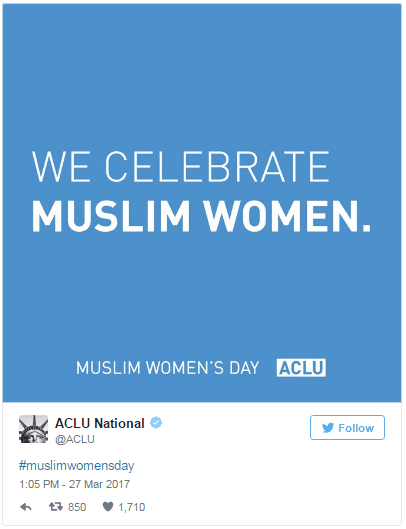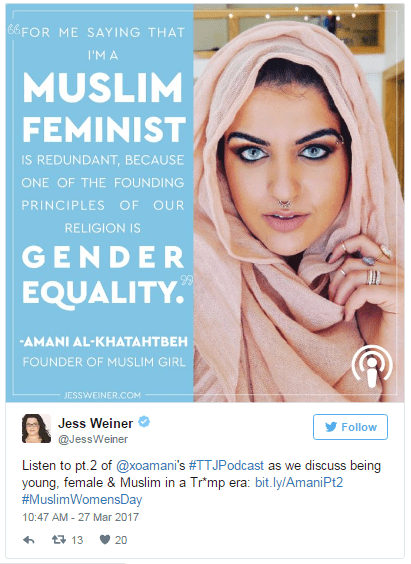While a number of similar prayer circles exist throughout North America, Masjid Al-Rabia grew into an idea after the Orlando nightclub massacre.
On Muslim Women’s Day — an online media campaign by MuslimGirl.com — a new mosque in Chicago is exemplifying what it means to put Muslim women first.
RELATED:
Muslim Women Form Human Chain in Defiance Against London Attack
Masjid al-Rabia, a women-centered, LGBTQ-inclusive, sect-diverse mosque that opened in December, names itself after Rabia al-Basri, a renowned Islamic poet and philosopher who is regarded as the first female saint of Sufism.
“A lot of us were both nervous and excited,” Zaynab Shahar, a queer PhD student who sits on the mosque’s board, told Teen Vogue.
During the mosque’s opening, Shahar, who is Sufi, delivered the sermon, while Mahdia Lynn, a white trans convert to the faith who is Shia, led prayers. Meanwhile, the call to prayer was a traditional Sunni one. For the organizers behind the project, plurality is important in ensuring each sect is “affirmed and uplifted.”
3 ways you can be part of #MuslimWomensDay on 3/27 ��
— Muslim Girl (@muslimgirl) March 22, 2017
Join @MTV @TeenVogue @Refinery29 @USOWomen @tumblr & more! pic.twitter.com/95lMGfhqol
And they all agree that in the face of strictly gender-segregated mainstream mosque spaces, where few women hold leadership positions, “centering women and affirming women needs to come first,” emphasized Lynn.
“This is a space for women,” explained Lynn, who is also the mosque’s executive director, to Teen Vogue. “Men, you’re welcome, you can be here, and you can pray with us, but you will pray beside us.”
While a number of similar prayer circles exist throughout North America, Masjid Al-Rabia’s story is unique in that it grew into an idea after the Orlando nightclub massacre. Queer and trans Muslims were in the media spotlight, and conversations between them and mainstream Muslim communities offered hope of creating more inclusive spaces.

But LGBTQ Muslims in Chicago saw no changes occur over the months, and decided to take the matter into their own hands.
“There were a handful of queer Muslims who thought this opportunity would be right for pushing LGBTQ Muslim assimilation into mainstream Muslim spaces,” recalled Shahar.
“(But) we’re not going to wait for people to tell us whether we can enter their space or not,” Shahar added. “We’re just going to make it happen.”

In just a few short months, the group has already started working to get Muslim programming in place at Chicago’s main LGBTQ center, Center on Halsted, as well as conduct workshops on LGBTQ sensitivity and inclusion for Muslim organizations.
RELATED:
Muslim-Palestinian Linda Sarsour Makes History at Women's March
In an era where rampant Islamophobia persists outside of Muslim communities, and there is lingering queerphobia in many Muslim communities, the project, and others like it, offer a semblance of hope.
That’s precisely why MuslimGirl.com, during Women’s History Month, paired with dozens of media and web partners to designate March 27 as Muslim Women’s Day.
“This day is all about centering Muslim women’s stories and voices. We call upon our allies to pass the mic to Muslim women by elevating their narratives online for the day,” the outlet explained on their site. “We’re teaming up with dozens of media and web partners to bring this dream into reality, like MTV, Huffington Post, Refinery29, Teen Vogue, Tumblr, Twitter, and many more.”
Throughout the day, many of these outlets will be sharing stories of Muslim women across the United States.